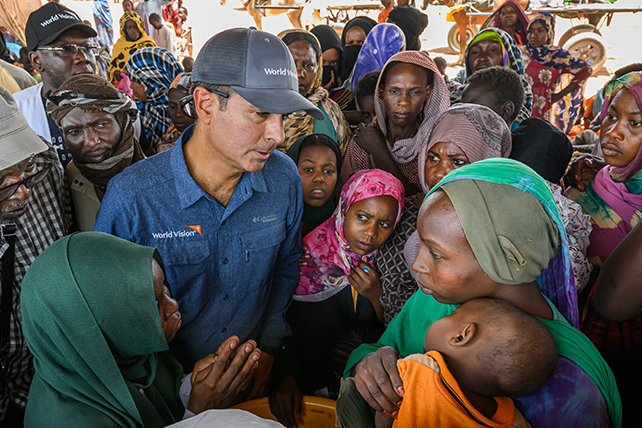For instance, the PEPFAR program for HIV and AIDS, a bipartisan program from the U.S. government, has saved 26 million people. There’s about 8 million children every year that are born HIV free. There’s 2 to 3 million children being vaccinated against polio. We’ve eradicated smallpox. Some of the things that we remind our donors is that over these 75 years, we’ve learned a lot also on how to get even better for the future. I remind them that one of the biggest crises we have today in the world is the lack of access to clean water. Yet World Vision is the largest (nongovernmental) provider of clean water in the world. We have the capabilities, the expertise to do that, and we can do it at scale. We can help solve the water crisis in the world. What’s needed is the funding to do it.
Besides access to clean water, what else is World Vision focusing its efforts on and why?
Water is one, the other one is people living in extreme poverty without enough income to provide for their families. People don’t want to be dependent on assistance. All they need is an opportunity and some tools and enablers for them to do so. We started a program about seven to eight years ago called the THRIVE program, and we have proven through third-party research that this program literally helps families lift themselves out of extreme poverty. It is geared towards smallholder farmer communities in places like Africa but also some places in Latin America. At the core foundation of the program is what we call the biblical empowered worldview. It starts with the premise of reminding everyone that they were created in the image of God and have agency and resources that they can harness to lift themselves out of poverty. We also provide other training, capacities, farming techniques, appropriate drought-resistant seeds and access to free markets.
You’re leading a Christian humanitarian organization that has been affected by the decisions of a government that increasingly brands itself as being Christian. How do you wrestle with that?
The Bible is very clear about what it means to be a Christian, a follower of Jesus Christ, and he starts with the promise that you help, you love your neighbor. That’s what we’re trying to do, and God has enabled us with 75 years of experience to do that — to come to the hardest places. And so, we are reminding everyone that to put your faith in action means helping the poor and the oppressed.
This article originally appeared here.
Continue reading on the next page

